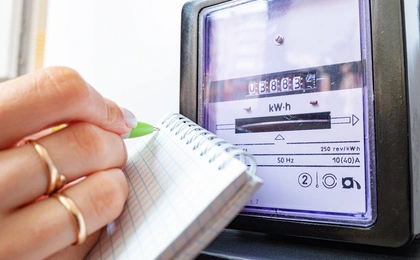The cost of gas and electricity is high, and many people are finding it hard to pay their bills. Some are even turning to something called energy theft to try and save money. But this is dangerous and against the law.
In this blog, we’ll explain what energy theft is, why it’s risky, and how you can get help if you’re struggling with your bills.
What does energy theft mean?
Energy theft is when someone tampers with their gas or electricity meter so it doesn’t show the full amount of energy they’re using. Some people even try to get around the meter completely.
They do this to try and pay less – or nothing at all – for their energy. Not only is this a crime, it puts people, their loved ones, and their communities in danger.
Why is energy theft dangerous?
Trying to steal gas or electricity is very risky. It can lead to:
- Fires or explosions
- Electric shocks
- Gas leaks
It’s not just the person doing it who’s in danger. It can also harm their family, neighbours, and even emergency workers.
If you’re caught, you could:
- Be taken to court
- Go to prison for up to 5 years
- Be told to pay back the energy you stole
- Have to pay for repairs, which could cost thousands of pounds
How common is energy theft?
You might think energy theft doesn’t happen often. But it’s more common than many people realise.
- Around 1 in 150 homes might be stealing energy every year
- Tip-offs about energy theft have gone up by nearly two-thirds in the last 4 years
- It costs the UK about £1.5 billion a year
- That adds around £50 a year to everyone’s energy bills
How to report energy theft
If you think someone is stealing gas or electricity, you can report it. You don’t have to give your name, and your details will be kept private.
The energy company will then look into it.
You can report energy theft online at Stay Energy Safe or by calling 0800 023 2777.
How long does it take to investigate energy theft?
It depends on what the company finds. But if they think something is wrong, they may:
- Visit your home to check the meter
- Call the police if needed
- Take you to court
If you’re struggling, there is help
Lots of people are having a hard time paying for gas and electricity. You are not alone – and you don’t need to take risks.
Here are 5 ways to cut your energy bills safely:
- Talk to your energy supplier. They may help you set up a payment plan or give you emergency credit if you use a prepayment meter.
- Check what support you can get. You might be able to get help like the Warm Home Discount (£150 off) or the Winter Fuel Payment. Ask your local council too – they may offer grants.
- Use a smart meter or app. These can show you how much energy you’re using. Even small changes can help, like turning the heating down by 1°C.
- Keep the heat in. Simple things like draught excluders, thermal curtains or radiator reflectors can make a big difference.
- Think about how you pay. If you top up at the shop, see if you can switch to paying by Direct Debit. It may be cheaper and easier to budget.
Help is out there – and it’s okay to ask
Energy theft might feel like a quick fix, but it’s not worth the danger. It can put you and others at serious risk – and it could cost you much more in the long run.
If you’re struggling to keep up with your bills, help is available. Many people are in the same boat, and support is out there – even if it doesn’t always feel easy to find.
The first step is to talk to your supplier or local council. You don’t need to face it on your own. Asking for help is a brave and important thing to do.
Fiona is a personal finance writer with over 7 years’ experience writing for a broad range of industries before joining Ocean in 2021. She uses her wealth of experience to turn the overwhelming aspects of finance into articles that are easy to understand.










